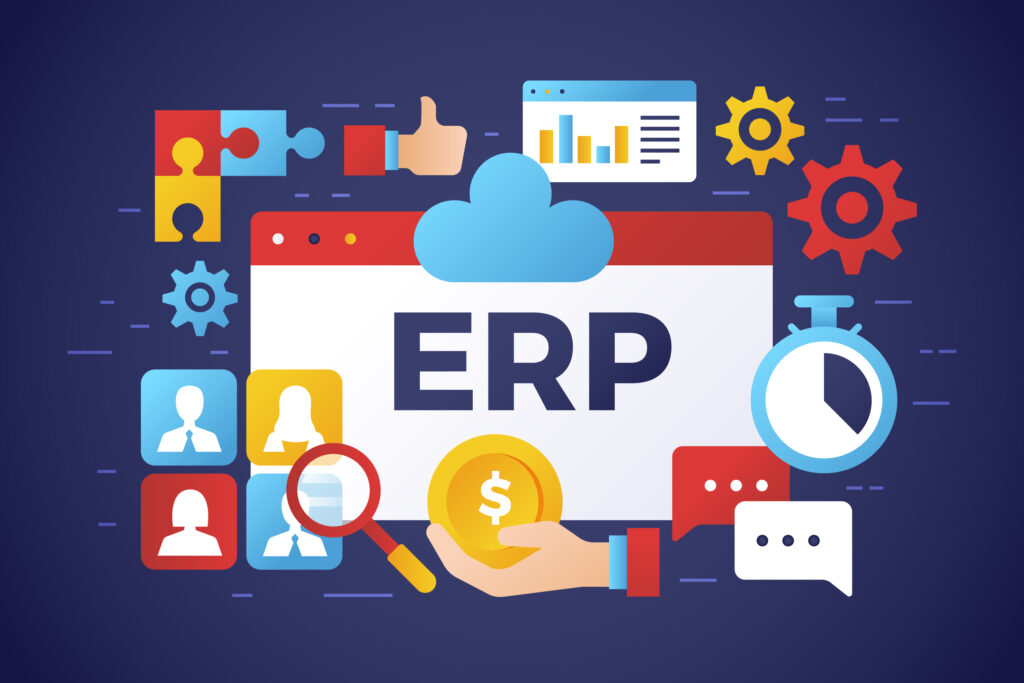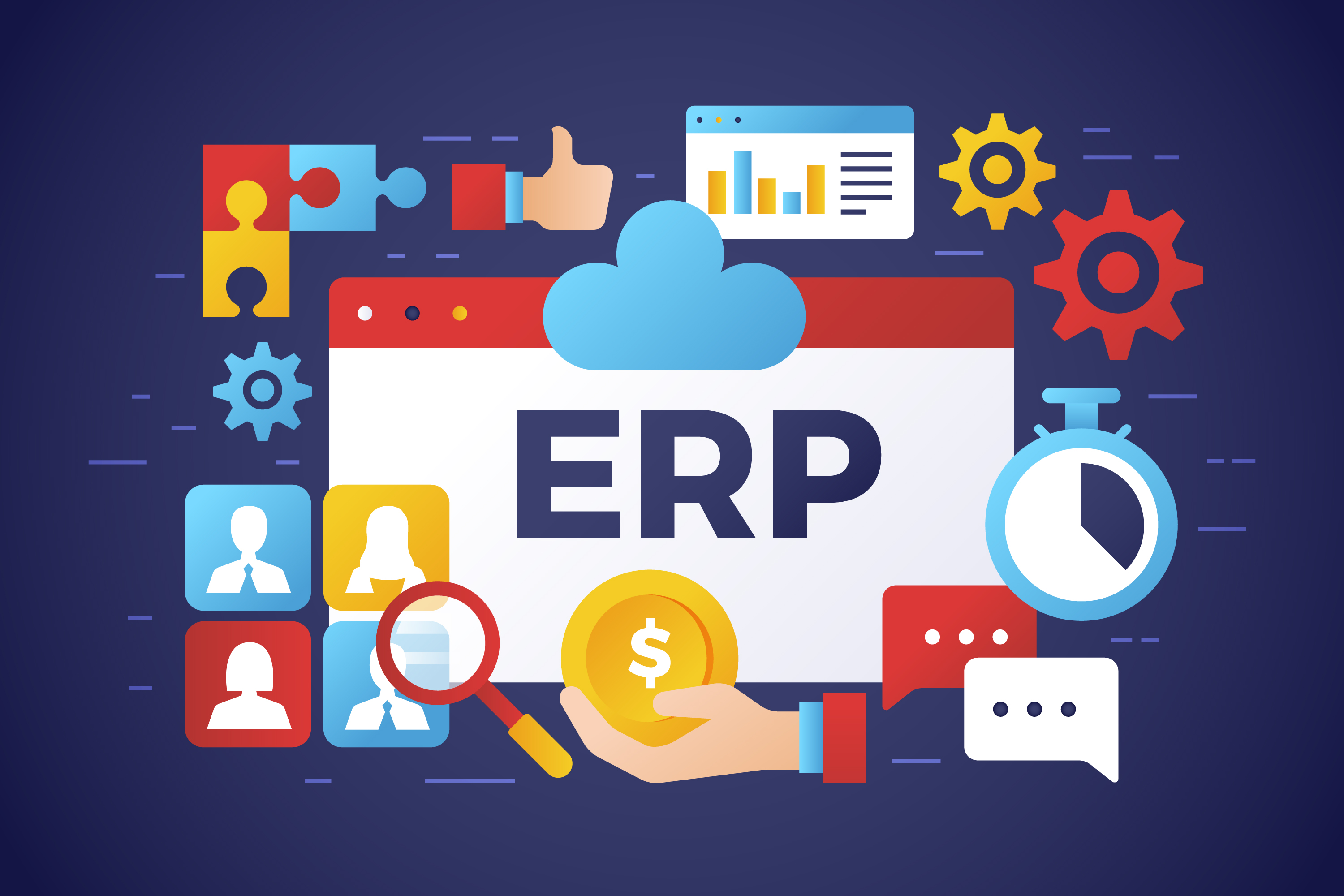In today’s fast-paced and competitive business landscape, small businesses need every advantage they can get to stay ahead. One such advantage that has gained significant momentum is the implementation of cloud-based Enterprise Resource Planning (ERP) solutions. In this article, we will explore the role of cloud ERP solutions and their significance for small businesses in 2023.

Understanding Cloud ERP
Cloud ERP is a software system that integrates various business functions into a single platform, hosted on the cloud. Unlike traditional on-premises ERP systems, cloud ERP offers greater flexibility, scalability, and accessibility, making it an ideal choice for small businesses. These solutions are usually subscription-based, eliminating the need for large upfront investments and ongoing maintenance costs.
Cost-Effectiveness
One of the primary benefits of cloud ERP solutions for small businesses is the cost-effectiveness they offer. By shifting from a capital expenditure (CapEx) model to an operational expenditure (OpEx) model, small businesses can significantly reduce their upfront costs. Cloud ERP eliminates the need for expensive hardware installations, infrastructure maintenance, and IT support, which can burden small businesses with limited resources. Instead, they can pay a predictable monthly fee based on their usage, allowing for better budgeting and cost management.
Scalability and Flexibility
Small businesses often face unpredictable growth patterns, and traditional ERP systems may struggle to accommodate sudden increases in data volume or user demands. Cloud ERP solutions provide the scalability and flexibility necessary to adapt to evolving business needs. Whether it’s adding new users, expanding to new locations, or incorporating additional modules and functionalities, it can effortlessly scale up or down based on the business requirements. This adaptability ensures that small businesses can stay agile and responsive to market changes without the worry of outgrowing their system.
Enhanced Collaboration and Accessibility
In today’s digital age, collaboration and accessibility are paramount. Cloud ERP solutions offer small businesses the ability to break down silos and foster seamless collaboration among departments, employees, and stakeholders. With real-time data accessibility, employees can access critical information from anywhere, at any time, and on any device with an internet connection. This feature is especially useful for small businesses with remote or distributed teams, allowing them to collaborate efficiently and make informed decisions quickly.
Improved Data Security and Reliability
Data security is a top concern for businesses of all sizes, and small businesses are no exception. Cloud ERP solutions often provide advanced security measures, including encryption, regular backups, and robust firewalls, ensuring the confidentiality and integrity of sensitive business data. Cloud ERP vendors also invest heavily in data centers with redundant infrastructure, providing high availability and reliable uptime. These measures offer peace of mind to small businesses by minimizing the risk of data loss, system failures, or cybersecurity breaches.
Streamlined Business Processes
Cloud ERP solutions automate and streamline various business processes, enabling small businesses to operate more efficiently. From finance and accounting to inventory management and customer relationship management (CRM), cloud ERP integrates these functions, eliminating manual data entry, reducing errors, and enhancing overall productivity. Small businesses can leverage the power of automation to focus on core activities, make data-driven decisions, and optimize resource allocation.
Integration and Scalability
In 2023, small businesses are more likely to operate in an ecosystem of interconnected software applications rather than rely solely on a single ERP system. Cloud ERP solutions often offer open APIs (Application Programming Interfaces) that facilitate seamless integration with other software applications such as e-commerce platforms, payment gateways, and marketing automation tools. This integration capability allows small businesses to tailor their technology stack to their specific needs and leverage best-of-breed solutions, providing a competitive edge in their respective industries.
As small businesses navigate the increasingly complex and dynamic business landscape of 2023, cloud ERP solutions have emerged as a vital tool for success. The role of cloud ERP solutions for small businesses in 2023 cannot be understated. With their cost-effectiveness, scalability, flexibility, enhanced collaboration, improved data security, streamlined processes, and integration capabilities, cloud ERP solutions empower small businesses to compete on equal footing with larger enterprises.
The cost-effectiveness of cloud ERP solutions allows small businesses to allocate their financial resources more efficiently. By avoiding hefty upfront investments in hardware and infrastructure, small businesses can redirect their funds towards core business activities, such as product development, marketing, and customer acquisition. This level playing field allows them to compete with industry giants and unlock growth opportunities.
Moreover, the scalability and flexibility of cloud ERP solutions ensure that small businesses can adapt to changing market conditions seamlessly. Whether they experience rapid growth or face temporary downturns, cloud ERP solutions can easily accommodate fluctuations in data volume, user demands, and business requirements. Small businesses can scale their operations up or down without the need for significant system overhauls or disruptions, providing the agility necessary to thrive in a dynamic business environment.
Collaboration and accessibility are essential factors for success in today’s interconnected world. Cloud ERP solutions enable small businesses to break down communication barriers and foster collaboration among teams, departments, and external stakeholders. With real-time data accessibility, employees can make informed decisions and take swift action, regardless of their physical location. This flexibility is particularly valuable for small businesses with remote or distributed teams, ensuring that everyone remains aligned and productive.
Data security and reliability are paramount concerns for small businesses. The threat of cyberattacks, data breaches, and system failures can have devastating consequences. Cloud ERP solutions address these concerns by implementing robust security measures and providing reliable infrastructure. With regular backups, encryption, and advanced firewalls, small businesses can protect their sensitive data and ensure business continuity. These security measures not only instill confidence in customers but also comply with data protection regulations, which are becoming increasingly stringent.
Streamlined business processes are a key driver of efficiency and productivity. Cloud ERP solutions automate repetitive tasks, eliminate manual data entry, and provide real-time insights into various business functions. By streamlining processes such as finance, inventory management, and CRM, small businesses can optimize resource allocation, reduce errors, and enhance customer experiences. This efficiency gain enables small businesses to operate leaner, make data-driven decisions, and deliver superior products or services to their customers.
Furthermore, the integration capabilities of cloud ERP solutions empower small businesses to create a cohesive and tailored technology ecosystem. In 2023, small businesses are likely to rely on multiple software applications to manage different aspects of their operations. Cloud ERP solutions, with their open APIs, allow for seamless integration with other software applications such as e-commerce platforms, payment gateways, and marketing automation tools. This integration streamlines data flow, eliminates manual data transfers, and enhances visibility across the entire business ecosystem. Small businesses can leverage the power of best-of-breed solutions and create a technology stack that suits their specific needs and growth strategies.
In conclusion, the role of cloud ERP solutions for small businesses in 2023 is pivotal. These solutions provide small businesses with a competitive edge by offering cost-effectiveness, scalability, flexibility, collaboration, data security, streamlined processes, and integration capabilities. Embracing these solutions allows small businesses to optimize their operations, enhance decision-making, and drive growth. In a rapidly evolving business landscape, small businesses cannot afford to overlook the benefits that it brings to the table. By harnessing the power of these solutions, small businesses can thrive, innovate, and achieve their full potential in 2023 and beyond.
Here are some more recommended reads to expand your knowledge on the topic:




